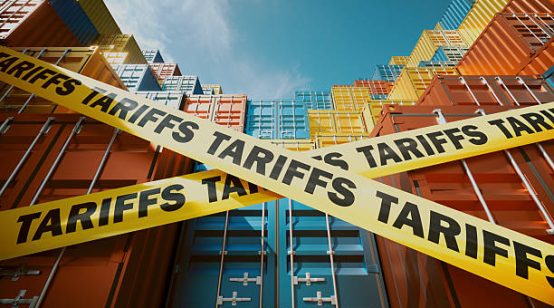
Global oil markets reacted sharply over the weekend after the United States launched airstrikes on three nuclear facilities in Iran, significantly escalating tensions between Iran and Israel. This latest move has triggered fears of broader instability in the Middle East, particularly around the vital Strait of Hormuz—a key oil shipping route.
Oil Futures Surge in After-Hours Trading
Following news of the US military action, oil futures surged in late Sunday trading. West Texas Intermediate (WTI) crude—the benchmark for US oil—rose by 2.7%, reaching approximately $75.80 per barrel. Meanwhile, Brent crude, the international standard, climbed by 2.44% to about $78.88 per barrel.
The spike in oil prices is largely attributed to growing concerns over the security of oil flows from the Gulf region. The fear that Iran could retaliate by disrupting traffic through the Strait of Hormuz—through which nearly a quarter of the world’s seaborne oil passes—has added volatility to global energy markets.
Market Reaction Beyond Oil
The military escalation also rippled through broader financial markets. US stock futures slipped in overnight trading. Dow Jones Industrial Average futures dropped by 175 points (0.4%), while S&P 500 futures also fell by 0.4%. Nasdaq futures were down by 0.5%, reflecting concerns about increased geopolitical risk and its impact on global growth.
In contrast, the US dollar gained 0.3% against a basket of major currencies, signaling that investors are seeking refuge in the greenback amid rising global tensions. Traditionally considered a safe haven, the dollar often strengthens during periods of international conflict or economic uncertainty.
Interestingly, Israel’s stock market responded positively. The Tel Aviv 125 Index rose by 1.8% to close at 2,919.62, while the TA-35 Index climbed 1.5% to finish at an all-time high of 2,877.78. Investors appeared to interpret the US airstrikes as a strategic move that might curb Iran’s nuclear ambitions and reduce long-term risks for Israel.
Impact on Global Oil Supply and Inflation Concerns
The United States remains one of the world’s leading oil producers, averaging about 13.4 million barrels per day. Even so, the nation still imports significant quantities of crude oil, including approximately 500,000 barrels per day that pass through the Strait of Hormuz.
That waterway remains a critical choke point for global energy trade. According to the US Energy Information Administration (EIA), over 25% of global seaborne oil shipments passed through the strait during 2024 and early 2025.
Any threat to shipping in this narrow corridor could have far-reaching effects. Economists warn that continued instability in the region could push oil prices higher, which might, in turn, lead to increased inflation in the United States and beyond.
As the world watches closely for Iran’s next move, energy analysts and government officials are urging calm but preparing for the possibility of market disruptions. The Biden administration is reportedly monitoring the situation to assess whether additional measures are needed to stabilize oil supply chains and minimize economic fallout.
The geopolitical implications of these events are still unfolding, but for now, global markets are on high alert, and the risk of further escalation remains a pressing concern.





